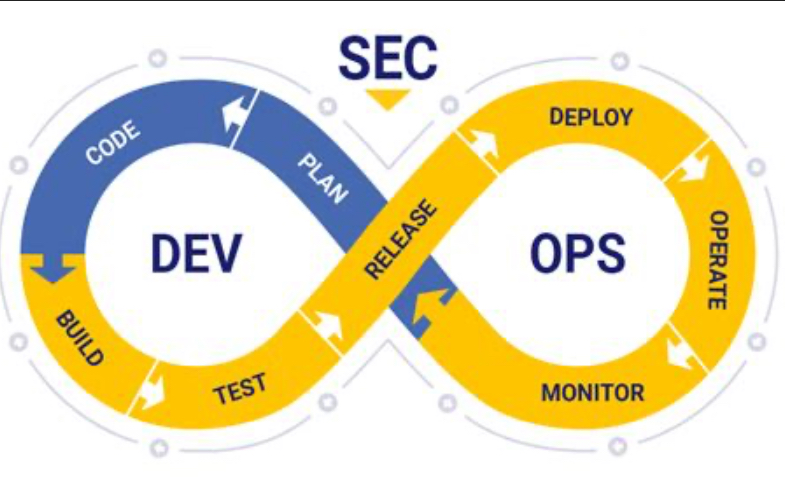
Hey there, kids! Have you ever heard of something called “DevSecOps”? It might sound like a strange and complicated word, but don’t worry, we’re here to explain it in a way you can understand.
Imagine you have a special secret box where you keep all your toys, and you want to make sure it stays safe. DevSecOps is like taking care of that secret box, but for computer programs and apps.
Let’s break it down into three parts: “Dev,” “Sec,” and “Ops.”
1. Dev (Development):
When people create computer programs and apps, they are like toy builders. They design, create, and build these digital toys. In the world of DevSecOps, this is where everything starts.
2. Sec (Security):
Just like you want to keep your toys safe in your secret box, computer programs need to be safe too. This part of DevSecOps is all about making sure the digital toys are protected from bad things, like hackers. Think of it as putting locks on your secret box or having guards to watch over your toys.
3. Ops (Operations):
Now, after building and securing the digital toys, we need to make sure they work smoothly. This is like making sure your toys are ready to play with whenever you want. It’s all about taking care of your toys and keeping them in good shape.
DevSecOps is like a team of grown-ups working together to create, secure, and take care of these digital toys. They build them, make sure they’re safe, and keep them running well. This way, people can use these digital toys without worrying about any problems.
So, in simple words, DevSecOps is about creating, protecting, and taking care of computer programs and apps, just like you do with your toys. It’s a way to make sure everything works well and stays safe in the digital world.
Now you know what DevSecOps is, and you can think of it as a big group of helpers making sure your digital toys are awesome, secure, and ready to play with!
chris@amberhill.biz
www.amberhill.biz



 Changing a company culture is not an easy thing to do & the blame culture which is endemic to many organizations needs to be eliminated for innovation to thrive. Here are some tips to eliminate the blame culture:-
Changing a company culture is not an easy thing to do & the blame culture which is endemic to many organizations needs to be eliminated for innovation to thrive. Here are some tips to eliminate the blame culture:- Team building is not all about weekends away in the Lake District building rafts & swinging through the trees. Effective Managers employ simple everyday methods to build team performance. Here are 10 tips for great team building:-
Team building is not all about weekends away in the Lake District building rafts & swinging through the trees. Effective Managers employ simple everyday methods to build team performance. Here are 10 tips for great team building:-
 One of the most difficult choices in New Product Development is in deciding what products to develop !
One of the most difficult choices in New Product Development is in deciding what products to develop ! Sometimes Project Management can be like “juggling sand”, tasks to complete, schedules to meet, requests to be met etc etc
Sometimes Project Management can be like “juggling sand”, tasks to complete, schedules to meet, requests to be met etc etc
 Recently released results from Nissan the Japanese automotive manufacturer illustrate how good product design leads to improved financial returns.
Recently released results from Nissan the Japanese automotive manufacturer illustrate how good product design leads to improved financial returns. Are you a Manager ? Do you spend all day glued to your screen ? Are you stuck in your “Ivory Tower” ? Are you far too busy to leave your office to walk around ? Think again….. In the book “In Search of Excellence” by Thomas J. Peters, Robert H. Waterman, Management By Walking Around or MBWA is described as “Getting management out of the office”. At United Airlines, Ed Carlson labeled it Visible Management or management by walking about. The Hewlett-Packard (HP) version of management by walking around” describes this technique as “marked by personal involvement, good listening skills and the recognition that everyone in an organization wants to do a good job.” Simply walking around is one of the most significant Management techniques you can employ, people feel valued that a Senior Manager has taken the time to get out and listen to her staff. “If you wait for people to come to you, you’ll only get small problems. You must go and find them. The big problems are where people don’t realize they have one in the first place.” – W. Edwards Deming Tomorrow get off your butt and have a walk around, you won’t regret it!
Are you a Manager ? Do you spend all day glued to your screen ? Are you stuck in your “Ivory Tower” ? Are you far too busy to leave your office to walk around ? Think again….. In the book “In Search of Excellence” by Thomas J. Peters, Robert H. Waterman, Management By Walking Around or MBWA is described as “Getting management out of the office”. At United Airlines, Ed Carlson labeled it Visible Management or management by walking about. The Hewlett-Packard (HP) version of management by walking around” describes this technique as “marked by personal involvement, good listening skills and the recognition that everyone in an organization wants to do a good job.” Simply walking around is one of the most significant Management techniques you can employ, people feel valued that a Senior Manager has taken the time to get out and listen to her staff. “If you wait for people to come to you, you’ll only get small problems. You must go and find them. The big problems are where people don’t realize they have one in the first place.” – W. Edwards Deming Tomorrow get off your butt and have a walk around, you won’t regret it!  Managers often complain they never get told bad news.
Managers often complain they never get told bad news. How many times have you worked on projects where the product spec is not defined?
How many times have you worked on projects where the product spec is not defined?